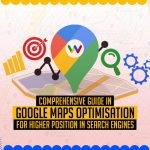SEO content writing is a process of creating content that is optimised for search engines. Search Engine Optimisation (SEO) is the process of optimising a website with the intention of landing on the first pages of Google Search to earn more visibility, traffic, and leads from the website. There are many factors that go into SEO, but one of the most important is the quality of the site’s content.
When it comes to writing SEO content, there are a few tried-and-true tips. This can help you write content that not only ranks highly in search engines, but also resonates with your audience and helps to convert them into customers or clients.
Introduction
Sydney Website SEO Agency provides well-written, keyword-rich, and relevant content that helps your landing pages rank highly in search results and drive traffic to the site.
Continue reading if you are ready to reap the benefits of SEO-optimised content on your website.
Table of Contents
What is SEO?

SEO, a short term for the word search engine optimisation, is a set of strategies and practices that are based on principles that may help landing pages become more appealing for search engine result pages. By improving the usability and appearance of a web page, they can achieve a higher position in organic search results. Doing so makes your landing page easier for people to discover and access, gaining your web page organic traffic in the process. SEO is one of the most effective ways in improving the number of converting traffic to your website.
SEO, a short term for the word search engine optimisation, is a set of strategies and practices that are based on principles that may help landing pages become more appealing for search engine result pages. By improving the usability and appearance of a web page, they can achieve a higher position in organic search results. Doing so makes your landing page easier for people to discover and access, gaining your web page organic traffic in the process. SEO is one of the most effective ways in improving the number of converting traffic to your website.
What is SEO Content?

SEO writing is all about writing with ranking higher in search engines as your main purpose. The goal of SEO content is to rank in search engines (like Google). SEO-optimised material is typically optimised around a certain keyword. The aim is when a reader search for that specific keyword, your landing pages will appear on Google’s search engine rankings, preferably its first pages.
But why do you have to aim to rank higher in search engine results? The answer is simple. When content ranks higher, readers notice them first. Think of this, if your landing page is located on the 5th page of Google’s SERPs, do you think your readers would really go over five more pages before they decide to choose a landing page to click?
What is SEO Content Writing?

As a business owner or startup company, you might have already heard about search engine optimisation and the wonders that it brings to your business. But what is SEO and is it different or the same as SEO content writing? SEO content writing is the process of creating content that is both user and search engine friendly.
Meanwhile, SEO stands for “search engine optimisation”. It is a process by which you can improve the visibility and ranking of your website or blog on search engines like Google, Yahoo!, and Bing. SEO content writing is one of the techniques involved in search engine optimisation.
The Basics of SEO Content Writing

The first page of Google usually captures 71% of search traffic clicks, while the second page receives around 6%. You are missing out on 71 out of the 100 people clicking on your landing pages if you fail to bring your landing pages to the first page of Google’s search engine.
SEO basics are simple: Write for your audience first, and Google second. That’s it.
Yes, there are a million other factors that go into ranking on Google, but if your content isn’t good, those other factors won’t matter.
The basics of SEO writing are to write for your audience first and Google second. That means understanding what your audience wants and needs, and then writing content that meets those needs. It also means using the right keywords throughout your content so that Google knows what your content is about and can rank it accordingly, gaining you improved organic traffic in the process.
Here are some tips for SEO copywriting:
Write for your audience first
The most important thing to remember when writing SEO content is that you are writing for your audience first and Google second. That means understanding what your audience wants and needs, and then writing content that meets those needs. It also means using the right keywords throughout your content so that Google knows what your content is about and can rank it accordingly.
Use the right keywords
One of the most essential things you can do when writing SEO content is to use the right keywords throughout your content. Keywords are the words and phrases that people use to search for information on the internet. If you want your content to be found by those people who are searching for information on your topic, you need to use the right keywords.
Make your content easy to read
Another significant factor in writing SEO content is making sure that your content is easy to read or SEO-friendly. That means using short sentences and paragraphs and using simple language that your audience will understand. It also means breaking up your content with headings and subheadings so that people can easily scan through it and find the information they’re looking for. Avoid keyword stuffing and ensure that appropriate meta descriptions are attached to your web page.
Use images and videos
Images and videos can help make your content more engaging and easier to understand. They can also help break up long pieces of text and make them more visually appealing. When using images and videos, be sure to include Alt text so that Google can index them and people with visual impairments can still understand your content. The image and videos that you have on your website can also appear on search engine results pages.
Promote your content
Once you’ve written your SEO-friendly content, it’s important to promote it so that people will see it. You can promote your blog posts, articles, and other content through social media, email marketing, and guest posting on other websites.
By following these tips, you can write SEO-friendly content that will help your website rank higher in SERPs and attract more visitors.
Five Elements of SEO Copywriting

Most successful businesses online are backed up with a prolific and highly converting SEO strategy. Having a spot on the first pages of search engine results resonates with a positive image for your business to your audiences. It increases traffic, visibility, and conversion rates. Most importantly, it creates a better image for your brand.
However, the struggle comes with writing good SEO content. With consumers’ needs and expectations constantly changing, SEO requires experience, and an SEO copywriter capable of keeping up with the changing SEO landscape.
But how can one keep up and deliver the best possible experience for their target market while staying aligned with the requirements of different search engine algorithms?
Essential Elements for Writing Effective SEO Content
Powerful Meta Descriptions
Meta descriptions or meta content is a teaser that adds interest to what your landing pages offer. The better your sneak peek is, the more enticing it will be for readers to engage, click and read your content.
But what makes a powerful meta description for your landing pages?
It is ideal to create a meta description that is between 50 and 155 characters. This is the ideal length that is completely visible in search engine results. Going over 150 may risk your meta content being shortened by Google.
Incorporating your landing pages’ focus keyword in your meta description is a must, you should not forget it when writing your meta content? Additionally, it should be motivating, direct, and engaging enough to drive your readers to act. It can be quite challenging to do all of this with a 155-character limit, but is very doable.
Write for Your Audience and For Search Engine Algorithms
Always remember that you are writing for your audience. But for your audience to see the content that you offer, you need to write for search engine algorithms too. This is where keywords come into play. Where you place your keywords, how often you use them, and the reinforcing related keywords that you use sum up the SEO content writing technique. These are the practices that you need to do to start getting noticed by search engines, who are your communication line to your audience.
Provide relevant information and pleasing content for your readers to boost SEO, which drives SERPs in ranking landing pages. Deliver content that people want to read.
People go to the internet for two reasons: they need a solution for a problem, or they require an answer to a question. Your goal is to provide either a solution or an answer.
To stand out in the SERPs, you must create valuable, in-depth material to provide answers and solutions to your readers’ issues. People are constantly on the lookout for reliable information online, and you’re probably not the only company providing a similar product or service.
Create Powerful Headlines
Now that you understand the value that intent and meta descriptions play with ranking landing pages, the next thing you need to pay attention to is creating powerful headlines.
Google has finally started to see the value that your content offers and gave you that much-coveted spot on its first pages. But why aren’t you receiving clicks? Chances are, your content does not have strong and interesting headlines that drive people to read your content.
Which of the two catches your attention the most?
What is SEO Writing?
SEO Writing, Its Advantages, and How it Helps Your Business Growth…
The second headline creates the impression that it offers something substantial to your need compared to the first title, right? Your target audience will most likely click on the second title too.
You need to optimise your headlines as much as your content. Even if you manage to get on the first pages of SERPs, you will be competing with at most a dozen other pages that have managed to reach the first pages of search results too.
Avoid Keyword Stuffing
This can be quite challenging for someone new to SEO copywriting. They can be often torn between adding as many keywords as they possibly can while creating content useful for your audience.
The key is writing your content first before adding your keywords. Let your thoughts flow and organically create an article or blog post. You will most likely mention your keyword as you go through your content with this process.
After completing your content, you can back read and start adding your keywords, as you see fit and appropriate to your article. Doing so also allows you to distribute your keywords evenly throughout your content, making it more natural. In addition, add more relevant keywords and try to use natural language rather than stuffing keywords into unnatural sentences.
Add Multimedia to Your Content
Write content that engages and is easy to digest, too. If you aim to tap into your general audiences, you need to create content that encourages readers to stay longer and read longer.
One of the effective ways to achieve this is by adding multimedia to your SEO content. Include videos, infographics, diagrams, tables, and photos in your content to achieve more visually stimulating blog posts and landing pages. Do not bore your target audience with a massive block of text. This will tire them out.
Adding multimedia to your content can also encourage the audience to share your content. We all love to share engaging content, take advantage of this opportunity when creating your landing pages and content too.
The Role of Keyword Research in SEO Content Copywriting

One of the vital components of content marketing and SEO copywriting is researching for keywords. It is one of the very first steps in your SEO content strategy.
The first stage in any SEO campaign is keyword research. Keyword benchmarking entails selecting the best queries to create and optimising your material based on them. You can write in the language that appeals to your audience when performing keyword research. It has an impact on how much traffic your work will receive. Keyword research has an influence on how well your content matches your target audience.
SEO keyword benchmarking is important for several reasons. It helps you to understand what people are actually searching for online, and how many people are searching for those terms. Keyword research also allows you to gauge the competition for a particular keyword and make sure that your content can rank against other content out there. Finally, researching for keywords can help you come up with new ideas for content or blog posts, which can help to attract even more traffic to your site.
How To Use Keywords?

We shouldn’t be making content about what we wish to communicate; instead, we should be creating it around what people desire to learn about. To put it another way, we should offer blog posts, articles, and other types of content for ideas and questions our target audience requires assistance with.
Here are different ways how you can use keywords in many aspects of SEO writing.
Identify Market Trends
Keywords help in determining the current market insights that will help you determine which topics to focus on when creating content. One of the important ranking factors in search engine optimisation is offering timely and relevant content to your target audiences. The search queries most often used by your audiences will help you predict specific keywords that are hot and trending in your industry.
With the use of the keyword phrases you have listed through your research, you can predict which topics are most relevant to your industry and content creation at the moment. SEO content writers can focus more on the topics that are in demand and your audience is currently searching for.
Helps Increase Organic Traffic
The more keyword phrases you use in your content, the higher you’ll rank in search engine results — the more people will visit your website.
By using the right keywords, you can also ensure that your content is seen by more people, which in turn will help in increasing your website’s ranking on search engines.
Better Client Acquisition
If your website offers content that other business professionals are seeking, you may fulfil their needs and provide them with a call to action that will take them through the buyer journey from awareness to purchase.
You can address the issues that most people in your audience want answers to use research keywords that are popular, high in search volume, and with a general goal or intent related to your brand. However, SEO writing should focus on a balance among these keyword phrases and ranking factors to achieve the best results possible.
However, keywords themselves because Google has evolved beyond exact-match algorithms. The search engine now focuses on the user’s intention behind a query, which is determined by factors like the user’s location, previous searches, and other Engagement metrics.
Therefore, you need to produce content for each stage of the buyer journey:
Awareness – Topical blog posts that answer common questions
Consideration – In-depth articles and guides that provide more detailed information
Decision – Product pages and other sales-oriented content
Once you have the right content, it’s time to focus on technical SEO to make sure your website is easy for search engines to crawl and index.
Writing Useful Content for Your Target Audience

A few key elements to consider when writing SEO content for your target audience are the following:
Title Tags
The title tag of each page should be unique and accurately describe the content on that page
Meta Descriptions
The meta description should give a brief overview of the page’s content and include relevant keywords
Headings
Use headings (H1, H2, etc.) throughout your content to help Google understand its structure
URLs
Each page on your website should have a unique, descriptive URL
Structured Data
Structured data markup can help search engines understand the relationships between pieces of content on your website
These are just a few of the most important technical SEO elements to focus on. However, the most important key recipe for your SEO content is the message that you want to convey to your audience.
Here are some tips to write better content for your audiences and for Google search results:
By following these simple tips, you can write SEO-friendly content that will help you rank higher in search engine results and attract more visitors to your website.
Choosing the Right Writer for SEO Content
Assuming you want to hire an SEO copywriter to help with your website’s content, there are a few things you should keep in mind.
First, make sure that the copywriter has experience with SEO and understands how to properly optimise content for the web.
Second, be sure to give the copywriter clear instructions on what keywords you want to target and what kind of tone you want the content to have.
Third, be prepared to pay a bit more for an experienced and qualified SEO copywriter; while rates will vary depending on the writer’s experience and expertise, you can expect to pay more for someone who can help you acquire more organic traffic and to achieve superior results.
Additionally, your SEO content writer should have a great eye for user experience. They should be able to add relevant images, format content, and add necessary multimedia that can maximise the overall appeal of the web pages for your main audience.
Frequently Asked Questions
What is an SEO content writer?
An SEO content writer is a person who specialises in writing content that is optimised for search engines. This type of writer typically researches and writes articles, blog posts, and web pages with the goal of increasing the visibility of a website or blog in search engine results pages (SERPs).
SEO content writers often focus on a certain keyword or phrase, and they try to use that keyword or phrase as many times as possible in their writing while still making the content interesting and readable for their target audiences. In addition to using keywords throughout the body of their writing, SEO content writers also optimise their titles and meta tags (which are tags that appear in the HTML code of a web page) to include the target keywords for their articles.
While some SEO content writers focus only on writing SEO-friendly content, others also have experience with copywriting, marketing, and web design, which can be helpful in creating well-rounded pieces of online content.
What is the difference between SEO writing and content writing?
SEO writing is a form of writing that is used to increase the visibility of a website or web page. Content writing, on the other hand, is the creation and distribution of written content to informing or engaging an audience. Although the two may seem similar, there are some key differences between SEO writing and content writing. The primary purpose of SEO writing is to increase the visibility of a website or web page in search engine results pages (SERPs). Meanwhile, the primary purpose of content writing is to inform or engage an audience.
Is content writing really necessary for SEO?
SEO content writing is a critical component of any successful SEO strategy. By creating compelling, keyword-rich content, you can help your website rank higher on Google and attract more visitors.
Are you ready to change the way you do your SEO content? Sydney Website Can Help
At the heart of any good SEO strategy is quality content. After all, without well-written and informative articles, webpages, and blog posts, it would be nearly impossible to rank high on search engine results pages.
You need high-quality SEO content, but you don’t have the time or resources to write it yourself. Producing great SEO content is essential for any business, but it can be difficult to do well if you’re not a seasoned SEO copywriter.
Sydney Website offers high-quality SEO content writing services that will help your business reach its online marketing goals. Our team of experienced writers will produce engaging and keyword-rich content that will help you rank higher on search results pages.



















































